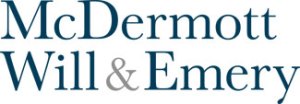On May 12, 2014, the National Collegiate Athletics Association (NCAA) lost its motion for leave to file a motion for reconsideration of a prior ruling, which barred the NCAA from arguing at trial that not paying student-athletes for their likenesses increased competition by raising financial support for women’s and less prominent men’s athletics. A former NCAA basketball player originally filed a class action suit against the NCAA in 2009 in the Northern District of California, alleging that the NCAA profited from student-athlete likenesses on television and in video games while prohibiting the athletes from receiving payment.
In re Student-Athlete Name & Likeness Licensing Litigation, case number 4:90-cv-01967. In April 2014, upon consideration of the parties’ opposing motions for summary judgment, District Judge Claudia Wilken ruled that plaintiffs were entitled to summary judgment as to the NCAA’s fourth justification for the challenged restraint – greater support for women’s and less prominent men’s sports – because this argument was not legitimately pro-competitive. Judge Wilken first determined that the NCAA could not restrain competition in the relevant market, football and men’s basketball, to allegedly promote competition in the markets for women’s sports and less prominent men’s sports. Second, the NCAA could financially support women’s sports and less prominent men’s sports through less restrictive means by forcing member conferences to redistribute a greater portion of profits made from football and men’s basketball to these other sports. In moving for leave to file a motion for reconsideration, the NCAA submitted a declaration and report from an economic expert, who argued that the relevant market should be broadened to include athletes who play sports other than football and men’s basketball. In response to the NCAA’s arguments, Wilken concluded that plaintiffs’ allegations challenged conduct with respect to football and men’s basketball, and the possibility that the challenged behavior affected student-athletes in other sports did not redefine the relevant market. Judge Wilken thus denied the motion, reiterating that the purported pro-competitive justification did not address competition in the relevant market of football and men’s basketball. Trial is set to begin on June 9, 2014.

